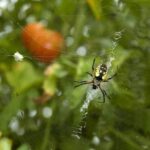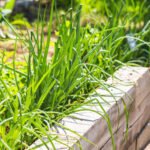Are you struggling to keep deer away from your beloved vegetable garden? Deer can wreak havoc on your hard work and destroy your crops, causing frustration and disappointment. Finding the best deer repellent for vegetable gardens is essential in protecting your plants and ensuring a bountiful harvest.
Deer pose a significant threat to vegetable gardens, as they are known to feast on a wide variety of plants, including many popular vegetables. From delicate lettuce leaves to thriving tomato plants, no crop is safe from these hungry intruders. However, with the right repellent, you can effectively deter deer from entering your garden and preserve your precious produce.
In this article, we will explore different types of deer repellent options available on the market today, including natural, chemical, and DIY solutions. We will also discuss best practices for using deer repellents to maximize their effectiveness in protecting vegetable gardens. If you’re ready to defend your garden against unwanted deer visitors, continue reading to discover the best repellent for your needs.
Identifying the Best Deer Repellent
When it comes to protecting your vegetable garden from deer, finding the best deer repellent is crucial. Fortunately, there are various types of deer repellent options available that can help keep these animals at bay and protect your precious crops.
Physical Repellents
One type of deer repellent option is physical barriers such as fences, netting, and cages. These physical barriers can be highly effective at keeping deer out of your vegetable garden, but they can also be expensive and labor-intensive to install. Additionally, some gardeners find them unsightly and not aesthetically pleasing.
Ultrasonic Repellents
Ultrasonic repellents emit high-frequency sounds that are not audible to humans but are intended to deter deer from entering the treated area. These devices are easy to install and maintain, but their effectiveness can vary depending on factors such as weather conditions and the behavior of the specific deer population in your area.
Scent-Based Repellents
Scent-based repellents use strong odors or tastes that deer find unpleasant in order to deter them from entering your vegetable garden. Some common scent-based repellents include products containing putrescent egg solids, garlic oil, or capsaicin (the chemical responsible for the heat in chili peppers). While these repellents can be effective, it’s important to rotate the type of scent-based repellent you use regularly as deer may become accustomed to a specific smell over time.
Natural Deer Repellents
When it comes to protecting your vegetable garden from deer, using natural and organic deer repellents can be an effective and eco-friendly solution. These options not only deter deer but also ensure the safety of your vegetables and the environment. Here are some of the best natural deer repellents for vegetable gardens:
- Plant-based Repellents: Certain plants such as lavender, marigolds, and mint emit strong scents that repel deer. Planting these around your vegetable garden can help keep deer at bay.
- Odor-based Repellents: Substances like garlic, eggs, and hot pepper spray can be mixed with water and sprayed around the perimeter of your garden. The strong odor deters deer from entering the area.
- Physical Barriers: Natural barriers like fences made from bamboo or thorny shrubs like holly can prevent deer from accessing your vegetable garden.
Using natural deer repellents has several advantages, including being safe for the environment, pets, and beneficial insects. Additionally, many of these options are cost-effective and easy to implement in your garden.
For those who prefer a DIY approach, creating homemade natural deer repellents is also an option. A mixture of water, hot sauce, and a few drops of dish soap can be an effective homemade repellent that won’t harm your vegetables but will keep deer away.
Incorporating natural deer repellents into your gardening routine requires monitoring and reapplication to ensure their effectiveness. However, when used correctly and consistently, natural deer repellents can provide a reliable defense against unwanted wildlife in your vegetable garden.
Chemical Deer Repellents
When considering deer repellents for your vegetable garden, it’s important to explore all the options available. Chemical deer repellents are one such option that is widely used by gardeners to protect their crops from deer damage. These products typically contain synthetic chemicals that emit odors or tastes repellent to deer, deterring them from entering the garden.
There are several chemical deer repellents on the market, each with its own unique formula and mode of action. Some common chemical deer repellents include liquid sprays, granular formulations, and scent packs. These products are designed to create a barrier around the garden perimeter or directly on the plants themselves to discourage deer from feeding.
When using chemical deer repellents in vegetable gardens, it’s important to consider the effectiveness and safety of these products. While they can be highly effective in keeping deer at bay, it’s crucial to follow the manufacturer’s instructions for application and use. Additionally, some chemical repellents may pose potential risks to plants, pets, or beneficial wildlife if not used properly.
Here are some popular chemical deer repellents that have been proven effective for vegetable gardens:
- Liquid sprays: Products like Deer Off and Liquid Fence create a strong scent barrier that repels deer.
- Granular formulations: Repellex and Bobbex Deer Repellent offer granular options that release an unpleasant taste when ingested by deer.
- Scent packs: PlantSkydd Deer Repellent uses a natural mixture of dried blood meal combined with garlic and other ingredients to deter deer.
By understanding how these chemical repellents work and following best practices for their use, you can effectively protect your vegetable garden from deer damage. Remember to consider environmental impact and potential harm to non-target species when selecting a chemical deer repellent for your garden.
DIY Deer Repellents
When it comes to protecting your vegetable garden from deer, homemade deer repellents can be an effective and budget-friendly solution. These DIY repellents are easy to make and can provide a natural way to keep deer away from your precious plants. Here, we will explore some simple and effective homemade deer repellent recipes that you can try in your own vegetable garden.
One of the most popular homemade deer repellents is a garlic and hot pepper spray. This natural mixture works by creating an unpleasant scent and taste that repels deer from your garden. To make this repellent, simply combine chopped garlic, hot peppers, and water in a blender. After blending the ingredients, strain the mixture and transfer it to a spray bottle. Then, you can spray the solution on and around your plants to keep deer at bay.
Another DIY deer repellent option is a soap-based spray. Deer are deterred by the strong scent of soap, making it an effective natural deterrent. To create this repellent, grate a bar of strong-smelling soap, such as Irish Spring, into a gallon of water. Let the mixture sit for 24 hours before transferring it to a spray bottle. You can then use this spray to protect your vegetable garden from hungry deer.
In addition to these homemade recipes, there are other DIY options such as hanging bars of scented soap around your garden or using human hair or predator urine as natural deterrents. These methods are all cost-effective and offer a natural way to protect your vegetable garden from deer damage.
| Deer Repellent Recipe | Ingredients |
|---|---|
| Garlic and Hot Pepper Spray | Chopped garlic, hot peppers, water |
| Soap-Based Spray | Strong-smelling soap (e.g. Irish Spring), water |
Best Practices for Using Deer Repellents
When it comes to using deer repellents in vegetable gardens, there are a few best practices that can help maximize their effectiveness. Deer can be persistent and clever creatures, but with the right strategies, you can protect your vegetable garden from their damage.
Choose the Right Type of Repellent
There are various types of deer repellents available, including sprays, granules, and electronic devices. It’s essential to choose the type that best suits your needs and preferences.
For example, if you prefer natural solutions, organic sprays or granules made from ingredients like garlic, pepper, or blood meal may be the best option. On the other hand, if you want a low-maintenance solution, electronic devices that emit ultrasonic sound waves or water jets when deer are detected may be more suitable for your garden.
Follow Application Instructions
Whether you opt for natural or chemical repellents, it’s crucial to follow the application instructions provided by the manufacturer. Applying the repellent incorrectly could diminish its effectiveness and leave your vegetable garden vulnerable to deer damage. Make sure to reapply the repellent as recommended, especially after heavy rain or irrigation.
Rotate Repellents
Deer can become desensitized to certain scents over time, making a single type of repellent less effective. To prevent this from happening in your vegetable garden, consider rotating different types of repellents throughout the growing season. This not only keeps deer on their toes but also ensures that your plants remain protected consistently.
By implementing these best practices for using deer repellents in your vegetable garden, you can help safeguard your precious crops from voracious deer and enjoy a bountiful harvest.
Conclusion
In conclusion, protecting vegetable gardens from deer damage is a top priority for many gardeners. Understanding the threat that deer pose to these gardens is the first step in finding the best deer repellent for vegetable gardens. Our exploration of different types of deer repellents has highlighted the various options available, each with its own benefits and drawbacks.
Whether it’s natural deer repellents, chemical options, or DIY solutions, there are several effective ways to repel deer from vegetable gardens. Each option offers unique advantages, and gardeners should consider their individual preferences and needs when choosing the best deer repellent for their situation.
Ultimately, it is clear that there is no one-size-fits-all solution when it comes to protecting vegetable gardens from deer. However, by following best practices and utilizing the most suitable repellent for their specific circumstances, gardeners can effectively safeguard their crops from deer damage. With proper planning and implementation, using the best deer repellent for vegetable gardens can help ensure a bountiful harvest free from unwanted animal interference.
Frequently Asked Questions
What Deer Repellent Is Safe for Vegetable Gardens?
Deer can be deterred from vegetable gardens using safe repellents such as garlic or rotten eggs. These natural scents are offensive to deer but safe for use around edible plants.
What Is the Most Effective Deer Repellent?
The most effective deer repellent is one that combines both scent and taste deterrents. Products containing ingredients like putrescent egg solids, garlic, capsaicin, or predator urine have shown effectiveness in repelling deer from gardens.
What Smell Do Deer Hate the Most?
Deer have a strong aversion to the smell of strong herbs like mint, thyme, rosemary, and lavender. Additionally, strong-smelling fruits like apples or citrus peels can also deter deer due to their overwhelming scent.

If you’re looking to get into vegetable gardening, or are just looking for some tips on how to make your current garden better, then you’ve come to the right place! My name is Ethel and I have been gardening for years. In this blog, I’m going to share with you some of my best tips on how to create a successful vegetable garden.





